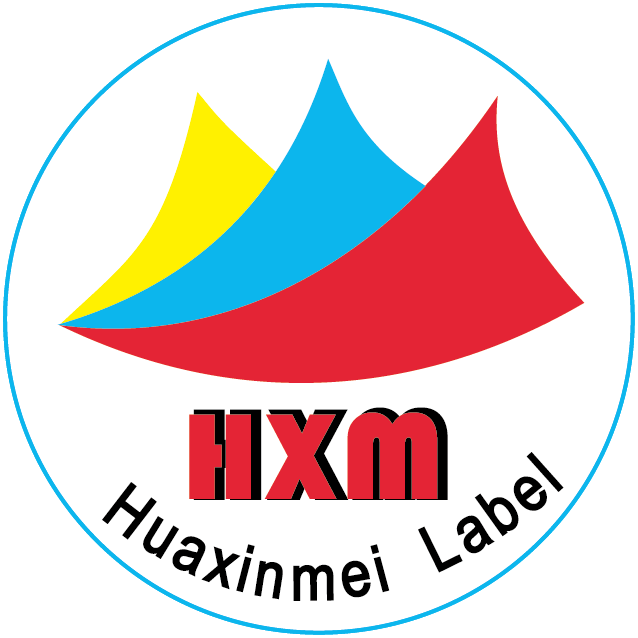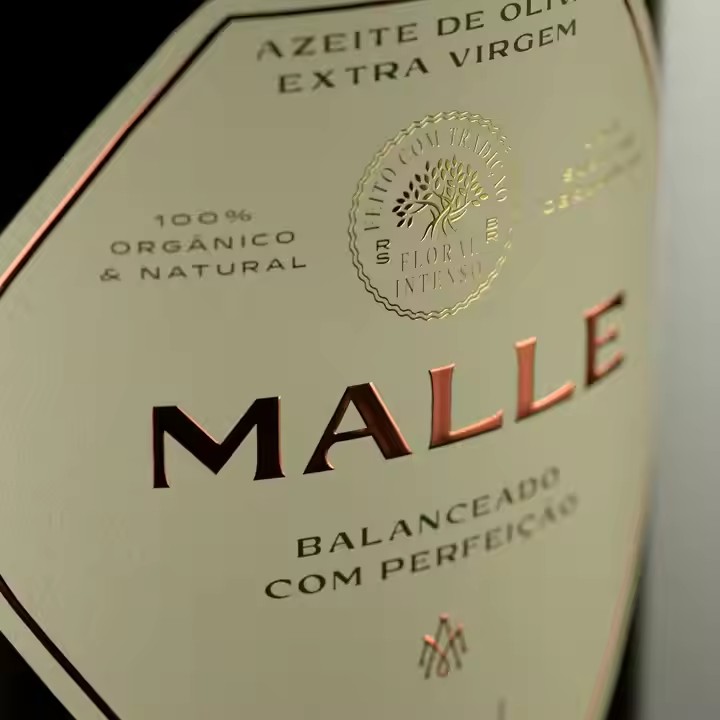Coated Paper
Characteristics: It has a relatively high whiteness and glossiness. The printed colors are vivid and the patterns are clear, which can effectively display the brand image and promotional information of the beverage. With a smooth surface, it is suitable for various printing processes, such as offset printing, flexographic printing, and digital printing.
Application Scenarios: Widely used in various bottled and canned beverages. For example, the labels of plastic bottled beverages of brands like Coca-Cola and Pepsi often use coated paper, attracting consumers’ attention through exquisite printing designs.
Cost: Relatively low cost, making it suitable for large-scale production.
PET Film
Characteristics: It has good water resistance, chemical resistance and abrasion resistance, and can adapt to various environments of beverage packaging. It is not easily eroded by the components in the beverage or damaged during storage and transportation. With high transparency, it can achieve a transparent or semi-transparent label effect, perfectly integrating with the beverage packaging bottle, and enhancing the overall aesthetics of the product.
Application Scenarios: Commonly used in bottled water, tea beverages, fruit juice beverages and other beverage products with high requirements for the water resistance and transparency of the label. For example, the label of Evian mineral water uses PET film, which not only shows the crystal-clear bottle body but also ensures that the label does not fall off or deform when in long-term contact with water.
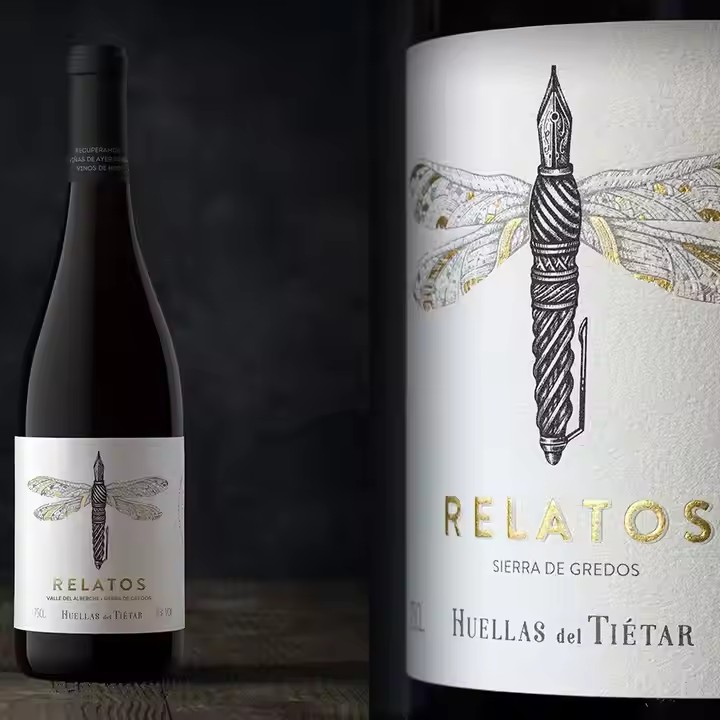
Cost: Moderate cost. Due to its excellent performance, it is widely used in some high-end beverage brands.
PP Synthetic Paper
Characteristics: It combines the advantages of paper and plastic film, with a tough texture, good folding resistance and is not easy to tear. It has certain waterproof and moisture-proof properties and can maintain good stability even in a humid environment.
Application Scenarios: Suitable for sports drinks, functional drinks and other products that need to maintain the integrity of the label in different environments. For example, part of the label of Red Bull beverage uses PP synthetic paper, which can withstand various outdoor environmental tests.
Cost: Relatively high cost, but due to its good performance, it is still widely used in some specific beverage categories.
Thermal Paper
Characteristics: It can print text and patterns through a thermal print head without ink, with a fast printing speed and relatively low cost. It has certain water resistance and chemical resistance, but its light resistance is poor, and it is easy to fade when exposed to sunlight for a long time.
Application Scenarios: Mainly used for some beverage products with frequent label information updates and sensitive to printing costs, such as freshly brewed beverages and specialty beverages produced in small batches. For example, some handcrafted beverages of Starbucks use thermal paper labels to print information such as the name of the beverage and customer requirements.
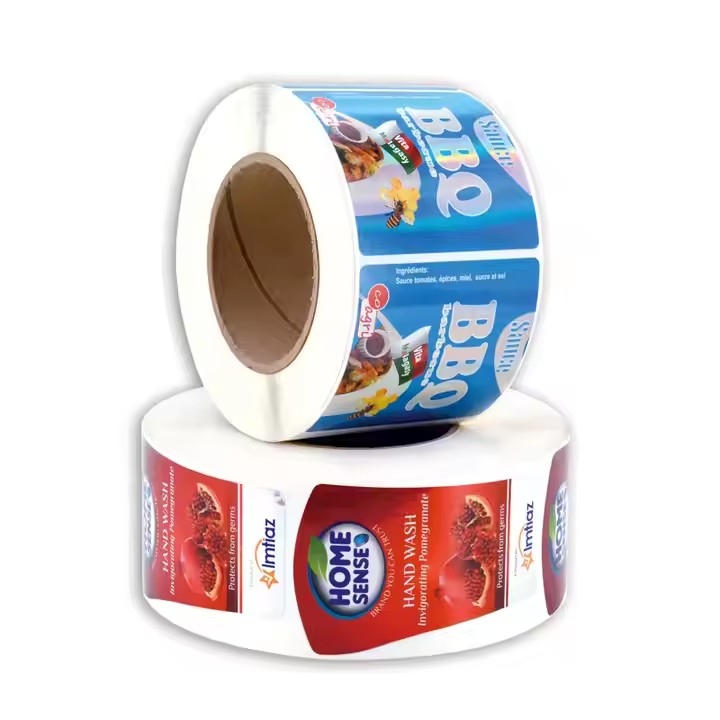
Cost: Low cost, especially in small-scale production or when temporarily changing label information, it can effectively control costs.
PVC Film
Characteristics: It has good flexibility and transparency, and can fit various shapes of beverage packaging containers. It has good printing adaptability and can present rich colors and exquisite patterns. At the same time, PVC film also has certain chemical resistance and moisture resistance, which can protect the content of the label to a certain extent from the influence of beverage components and the external environment.
Application Scenarios: Widely used in various beverage packaging, especially for some special-shaped bottles or beverage products that require special display effects. For example, some fruit juice beverages use PVC shrink film labels to form a tightly fitting packaging effect on the bottle, which not only shows the characteristics of the product but also plays a certain anti-counterfeiting role.
Cost: Relatively low cost, which is a cost-effective label material choice. However, due to environmental protection issues, its use is restricted in some regions.
Aluminum Foil Paper
Characteristics: It has excellent barrier properties, which can effectively block light, oxygen and moisture, protect the beverage from external factors and extend the shelf life of the product. At the same time, aluminum foil paper has good thermal conductivity and electrical conductivity, and can be used for some special packaging needs, such as heat sealing and electromagnetic induction sealing. In addition, aluminum foil paper has a high-end and gorgeous appearance effect, which can enhance the grade and added value of beverage products.
Application Scenarios: Commonly used in high-end beverages, functional beverages or beverage products with high requirements for shelf life. For example, some imported high-end fruit juice beverages or health beverages use aluminum foil paper as the label material, which not only ensures the quality of the product but also shows the high-end positioning of the product.
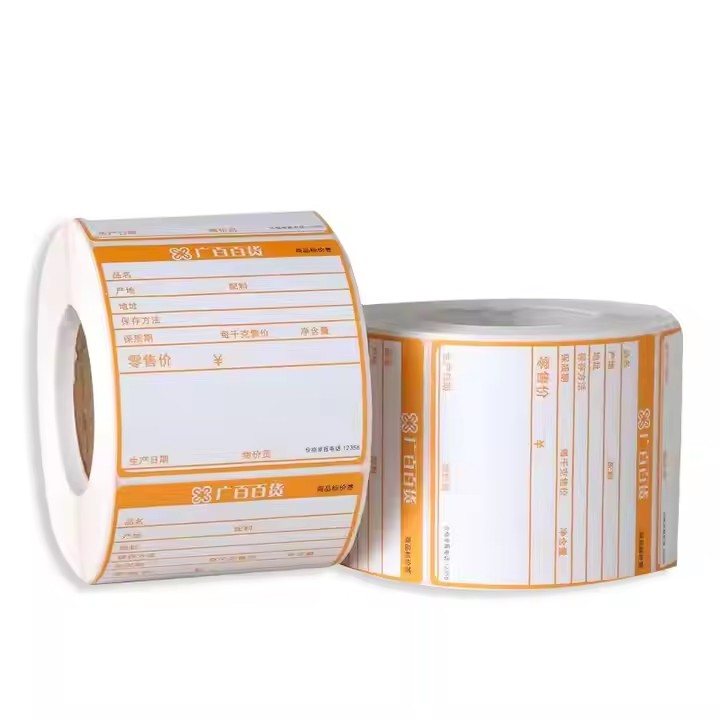
Cost: Relatively high cost, but its unique performance makes it irreplaceable in the specific beverage market.
Specialty Paper
Characteristics: There are many types of specialty paper, such as art paper, embossed paper, pearlescent paper, etc., which have unique textures, colors and textures, and can bring unique visual and tactile experiences to beverage labels, enhancing the product’s recognition and attractiveness. These papers usually have good printing adaptability and can show rich details and exquisite designs through various printing processes.
Application Scenarios: Suitable for some high-end and personalized beverage brands, such as craft beer, high-end wine, specialty tea beverages, etc. For example, some craft beer brands use embossed specialty paper with a retro style as the label to create a unique brand atmosphere and attract consumers who pursue individuality.
